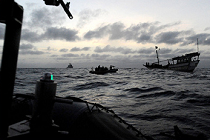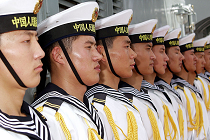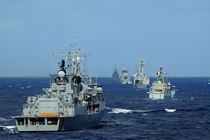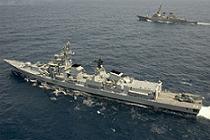Piracy: A dangerous eco-system
The concern with piracy is in our waters is three-fold: the threat to Indian-owned vessels and Indian citizens; the difficulty in dealing with piracy and hostage-taking on the high seas; and finally, squeezing the organized industry. Can India play a leadership role in this effort?










